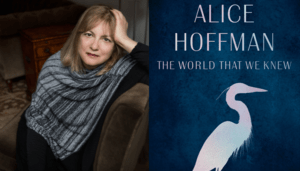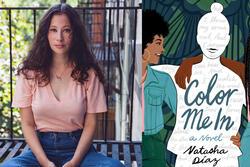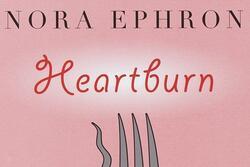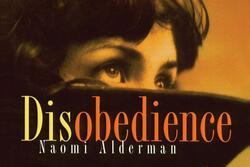An Interview with Alice Hoffman about "The World That We Knew"
JWA spoke with Alice Hoffman about her new novel, The World That We Knew, one of our 2019-2020 Book Club picks. In The World That We Knew, Hoffman weaves a magical story set in 1940s Germany. Through the eyes of two young women and a magical golem, readers embark on a journey for survival fueled by love and companionship.
What was your inspiration for writing this book?
Many years ago, a woman was waiting for me outside of a reading that I gave at a library in Florida. She asked if I could write her story and told me that she had been a hidden child in France in a convent. She felt that if someone didn’t tell the story, it would be lost; already people have been forgetting what it happened. I had never heard of the hidden children in France, and I told her I couldn’t really write someone else’s story. And yet, I kept thinking about her over the years, and in 2016, I began The World That We Knew. I will always be grateful to that stranger who I never met again for the gift of this novel.
The first sentence in the book reads, “If you do not believe in evil, you are doomed to live in a world you will never understand.” This really struck me as I think most people would prefer not to believe in evil and existentially struggle to grapple with badness in the world. Your books often contain magical elements that help characters make sense of the world and of the evil in it. Why do you use magic in this way and what draws you to the supernatural in your writing?
I think that writers are very influenced by what they read as children. I read fairy tales, folktales, and myths, and listened to the stories that my Russian grandmother told me. I believe that the original stories were filled with magic and were part of the oral tradition of grandmothers telling stories to their grandchildren.
It is clear when reading about the Holocaust that evil exists. But what was less apparent to me until I began to do research [for this novel] was how much good there also is in the world. For me, this novel is filled with hope.
How is Ava, the golem created by the rabbi’s daughter, Ettie, different from the golems in Jewish folklore? Traditionally, women are forbidden from creating these mystical creatures, but both Ava and her creator are female. Can you talk about this decision and the research you did to write these characters?
In most folktales about the golem, the maker is male—usually a rabbi, or a scholar, or a magician—and the golem himself is male. In my story, the golem is female, made by women: a teenage girl and a mother desperate to find safety for her daughter. I was interested [in exploring] what the difference would be if all the participants were female, and in fact, the story veers dramatically from traditional folk tales about the golem.
In Paris, Ava finds herself drawn to the river after Lea has gone to sleep. There, she meets a heron and continues to visit night after night. What was the significance of the heron in the story and his relationship with Ava? Why did you choose a heron versus another bird?
The novel takes place in a world where men can act like beasts and beasts can be humane. The heron offers unconditional love and is attached to the beauty of the natural world, all of which introduce Ava to what humanity really is.
Unlike the other girls in the story, Ava, a golem, has no soul. At the end of the story, you leave the reader to ponder whether the very real human emotions she’d experienced throughout the novel have somehow “ensouled” her. What is a “soul” to you and do you think the fact that Ava was created by a woman enables her to have one when other golems do not?
What a soul is is debatable and has been for thousands of years. Inside the novel a creature said by the scholars to have no soul embarks on a journey, and love changes everything.
Ava’s journey is a process of self-discovery and self-actualization. In some ways, Ava acts as a commentary on what it means to be human (or not). To you, what does it mean to have humanity?
Yes I totally agree—the book is a journey about her self-discovery and also the discovery of the world and of other people. I do think that her love for someone else’s child and her experiences in the world teach her about who she is and who she can become.








Thank you for this interview. I am always enchanted by Ms. Hoffman's books and this one was no exception. It is nice to have some insight into what went into writing this amazing novel.